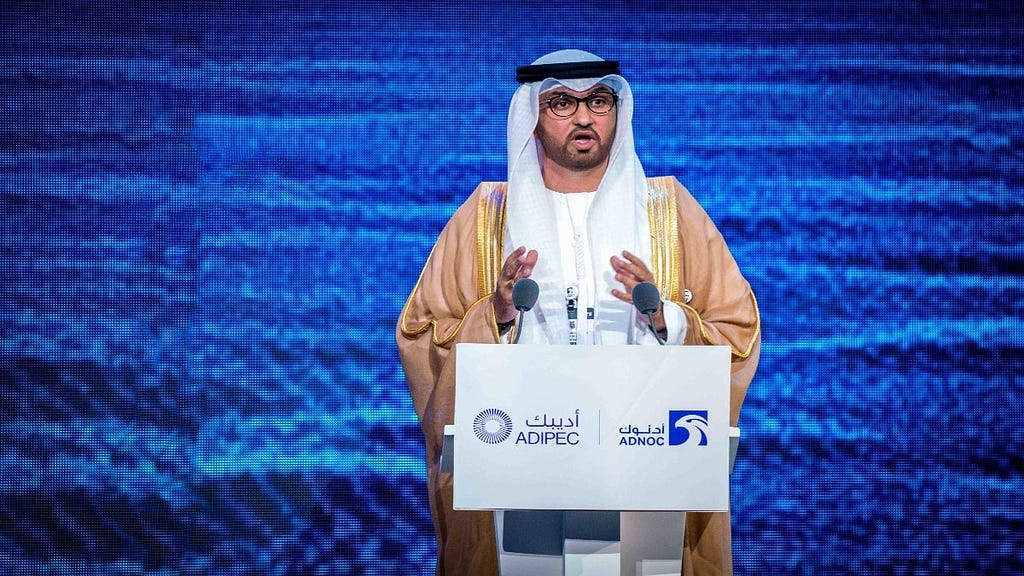From what is being seen, the Climate Summits are of no use, and are beginning to look more like a joke.
Yesterday I published an article on this blog titled “The evolution of global fossil fuel production and consumption does not bode well”, in which I referred to the fossil fuel production plans, and how the forecasts were for continuous growth. for the next decade, something that contravenes the environmental objectives improves me.
Today it can almost be said that climate change objectives are more dream than reality. The cause? Producing countries do not want to lose their main and in many cases only source of income, and they are doing what is necessary to increase it.
These Oil and Natural Gas producing countries no longer even stop at taking care of appearances. The twenty-eighth climate summit, which will take place this year in Dubai (United Arab Emirates), is heating up with two days left before its start. For the first time, an oil company will preside over COP 28. Specifically, it will be Sultan Ahmed Al Jaber, CEO of the Abu Dhabi National Oil Company. However, this anecdote, loaded with absolutely negative symbolism with the environmental commitment that usually comes out of these major events, has become a direct intersection between those who bet on renewable energy versus those who maintain their commitment to gas and Petroleum.
Until now, the International Energy Agency (IEA), which mainly brings together the United States and the European Union, had had slight clashes with the Organization of the Petroleum Exporting Countries (OPEC), which brings together all producers, among which Saudi Arabia, United Arab Emirates, Nigeria and Kuwait stand out. Disputes that have intensified this week after two episodes full of intentions between those who defend one technology or another.
Firstly, last Thursday the IEA, with a week to go before the summit began, published a report titled ‘The oil and gas industry faces a moment of truth — and an opportunity to adapt — as that advances the transition towards clean energy’. It was a clear message that put all oil companies on notice, mainly those in the Middle East.
Are Climate Summits useful for anything?
The report included statements such as “producers must choose between contributing to an increasingly serious climate crisis or becoming part of the solution by adopting the shift to clean energy”. Furthermore, Fatih Birol, Executive Director of the IEA, elevated it further: “The oil and gas industry faces a moment of truth at COP28 in Dubai. With the world suffering the impacts of a worsening climate crisis, business as usual is neither socially nor environmentally responsible”.
This Monday, after this forceful report, the British media BBC published that the United Arab Emirates planned to use its role as host at the United Nations (UN) climate summit as an opportunity to negotiate and close agreements on oil and gas. gas. This was revealed by a series of leaked documents that reveal plans to discuss fossil fuel agreements with up to 15 countries.
Finally, the British media reports that the UN body, responsible for COP28, said that it “expected the hosts to act without prejudice or their own interests”. Despite this, the United Arab Emirates did not deny having used the climate summit meetings to hold business talks, and also stated that “private meetings are private”. On the other hand, he refused to comment on what was discussed in those meetings and stated that his work has focused on “significant climate action”.
At the beginning of last October, OPEC published its 2023 Annual Report on the global oil market outlook. However, the perspectives he detailed regarding the expectations for the evolution of oil demand in the coming years are very different from those announced by the IEA a few weeks ago. Thus, and according to the information collected by this medium, “while the IEA talks about reducing oil demand, OPEC assures that demand must increase by 23% until the year 2045. This represents an average of three million more barrels per day each year, until reaching 116 million barrels per day.
On the other hand, while the IEA emphasizes that “new investments will not be necessary in the exploitation of new oil fields, OPEC calls for an investment of 14 billion dollars for the exploitation and extraction of new fields”. It should be added that oil producers plan to increase the presence of renewables in the energy mix from 2.7% to 11.7% in 2045.
The Dubai Summit is called to clear up many unknowns about energy geopolitics both business and political guidelines. But the first mistake is a big one, it has already been made. Putting the organization of a climate summit in the hands of an oil-producing country to decide how to replace fossil energy with renewable energy is like putting a fox in charge of chickens. Energy geopolitics is going to be replaced by the geopolitics of oil and gas businesses.
To do this, business leaders, Prime Ministers and Ministers will board 400 private Jets to attend the Summit to close their agreements. Climate Goals? NO, business objectives. They all attend the summit to close long-term oil purchase agreements, compromising the objective of the summit to achieve that of OPEC, which is to sell oil until the wells are exhausted.
Once again, the greed of a few brings the rest of us one step closer to the abyss of climate hell. One way or another, this must be stopped once and for all, otherwise we will all end up there, in planetary hell.
El artículo se puede leer en español en este enlace.

Comments